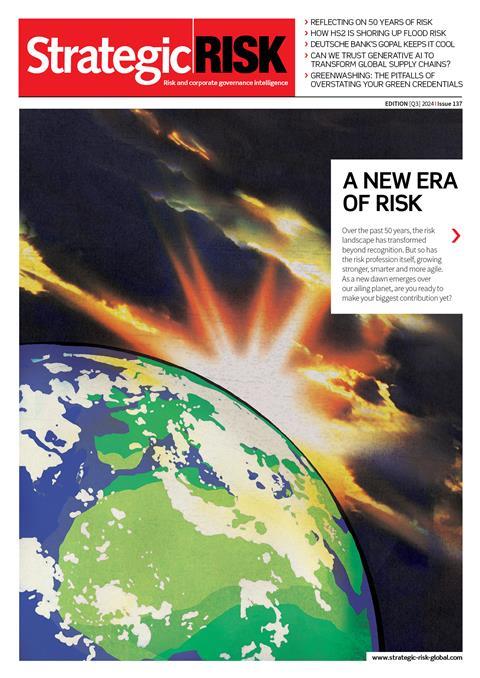Hopkin's report from the working party at the high level conference on D&O liability organised in London by AIRMIC and the Association of British Insurers (ABI) in Association with the Institute of Directors (IoD) on 5 May 2004 did not disguise the frustration risk managers felt about volatile swings in the market and the way insurers handled them.
D&O premiums for some AIRMIC members surveyed had increased by 500% or more over the two years between 2001 and 2003, and 'random' exclusions reduced the protection for individuals' personal exposure.
There is little information available about D&O claims, and rating models produce suspiciously precise quotes. "Risk managers often do not have access to the rating model. If they did, they would know the conditions for which they were being penalised and could do something about them," said Hopkin."
In future, he said, directors will have greater understanding of D&O insurance, and this may lead to questions about the level of cover to buy, particularly whether they need balance sheet protection when the company's rating is as strong as the insurer's.
Kelly Lyles, head of AIG's financial lines division in the UK and Ireland, said that the typical increase in D&O premiums was nothing like 500% and much closer to 80%. In 2001, the number and size of settlements against foreign issues on US stock markets had risen dramatically. Premiums no longer covered claims, so underwriters were obliged to increase their prices.
Lyles agreed that there had been no claims of more than £20m in the UK courts, but she said that there had been a case where defence costs exceeded this figure. More common, however, were cases where the claims to date ranged from £200,000 to £750,000. With the constantly increasing amount of business regulation in the UK, D&O claims are expected to increase in frequency, she said.
The Institute of Directors (IoD) is campaigning for limits to directors' unlimited liability. Its director general, George Cox, said it had essentially remained unchanged for 150 years. In the current climate, companies that run into trouble and that most need the skills of experienced directors, are increasingly unlikely to get them under the current liability regime.
"No one performs well under the threat of long term ruin," Cox argued.
RESULTS OF D&O SURVEY
Thirty two AIRMIC members revealed their experience with D&O insurance.
Limits of indemnity on renewal in 2003: £20m to £200m
Increase in indemnity since 2001: most reported no change; one had risen by £80m
Increase in premiums 2001-2003: a wide range up to 500%+
New exclusions: many and varied
Claims history: few had any notifications. One had a multi-billion pound claim struck out, with defence costs ultimately less than £1m.
US exposures: most have some US exposure, and this correlates with the greatest premium increases.
The Secretary of State for Trade and Industry, Patricia Hewitt, used the AIRMIC/ABI/IoD conference to announce that the Government has decided to make publication of an operating and financial review (OFR) a statutory responsibility for quoted companies. An OFR is the directors' overview of the company and will give information on a company's objectives, strategy, past performance and future prospects. There will be a consultation period until August 6. Copies of the consultation document from: www.dti. gov.uk/cld/financialreview.htm

















